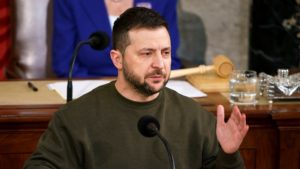We have all seen this on the walls of someone’s house. Perhaps it is done in counted-cross-stitch. Perhaps it is done in calligraphy. But we have seen these framed squares or rectangles hanging in a living room and containing a Bible verse shorn of its context. Most of the time this works fine—the verse functions meaningfully even in isolation. But other times the biblical nugget on display may not mean what the wall hanging hints it means. It needs context.
These three verses from Isaiah 63 are like that. These lovely sentiments of praise and thanksgiving to God do not emerge from out of nowhere. Starting already in verse 11 a note of darkness is introduced when the writer shifts from thanking God to remembering the time when God actually became the enemy of God’s own people due to Israel’s terrible sinfulness. More bracing yet, however, are the verses just prior to this selection.
Isaiah 63:1-6 presents the passage from which we get the “grapes of wrath” imagery as the figure of a warrior God is seen barreling onto the scene with garments that are covered with stains. Except that the stains are only metaphorically grape juice stains from trampling out the vintage. The actual stains are from the blood of nations conquered and punished by God. This is not the “I Love Lucy” in which Lucy has to trample grapes and gets flecked with grape juice.

This is more like Braveheart stained with the blood and brains of other men from fierce battles in a war.

In short, the opening of Isaiah 63 is far from pleasant and a far cry from anything we’d care to consider for very long on this Sunday after Christmas and on New Year’s Day 2023. Yet this is the context for today’s Old Testament Lectionary selection: bloody conquest of the nations on one side, a bloody punishment for Israel’s evil ways on the other.
And yet . . . in the midst of all that there is this resolve starting in verse 7 to tell of the “kindnesses” of the Lord God of Israel. There are tender words about being the people of God who really were more like the children of God whom God carried tenderly in his arms and upon his shoulders. We pivot from the bloody warrior to a happy family.

It’s enough to give the average biblical reader whiplash. Maybe these verses were chosen for the Sunday after Christmas as a reminder that by being born a human child sent by his heavenly Father, Jesus has now opened up the way for all of us to become children of God (pace John 1:12). Now because Jesus has become our Savior—evoking again language directly from Isaiah 63:8—God carries all of us on his fatherly shoulders in all the kindness and love and beauty these few verses summon up for us.
But maybe seeing these verses in context can remind us of another truth of Christmas. Because often around the time of the Sunday after Christmas we also consider the Slaughter of the Innocents in Matthew 2 and thus the need for the Holy Family to flee to Egypt for safety for a time. The fact is that for all the “how silently, how silently” serenity with which we imbue Christmas every year—all is calm, all is bright—the fact is that Jesus was born into a brutal world whose sin and evil need conquering and judging. The neat little swaddling cloths with which the infant Jesus was said to be wrapped will be replaced one day with a garment worn by Jesus with the blood of many lashings oozing through to the fabric from his ravaged and whipped back.
We cannot celebrate Christmas and be only starry eyed. We need the verisimilitude of Isaiah 63:7-9 when seen in its proper context. Salvation did not come cheap. It did not come easily. It has been a battle. The fact that God did this all for us is why we praise God for his many kindnesses, as verse 7 says. We are blessed to be carried by our loving Father in heaven. But it cost this loving God a lot to get us to that point.
Illustration Idea

Somehow this idea of Christmas being nestled in the reality of our brutal world reminds me of the speech given by Ukraine President Volodymyr Zelensky to the U.S. Congress on December 21, 2022.
“Ladies and gentlemen, in two days we will celebrate Christmas. Maybe candlelit. Not because it’s more romantic, no, but because there will be no electricity. Millions won’t have neither heating nor running water. All of these will be the result of Russian missile and drone attacks on our energy infrastructure. But we do not complain. We do not judge and compare whose life is easier . . . We’ll celebrate Christmas. Celebrate Christmas and, even if there is no electricity, the light of our faith in ourselves will not be put out. If Russian missiles attack us, we’ll do our best to protect ourselves. If they attack us with Iranian drones and our people will have to go to bomb shelters on Christmas Eve, Ukrainians will still sit down at the holiday table and cheer up each other. And we don’t, don’t have to know everyone’s wish, as we know that all of us, millions of Ukrainians, wish the same: Victory.”
Sign Up for Our Newsletter!
Insights on preaching and sermon ideas, straight to your inbox. Delivered Weekly!
Sermon Commentary for Sunday, January 1, 2023
Isaiah 63:7-9 Commentary